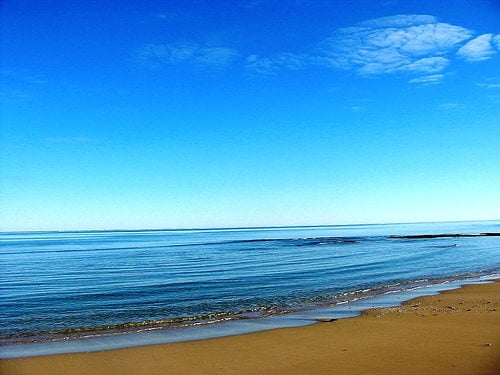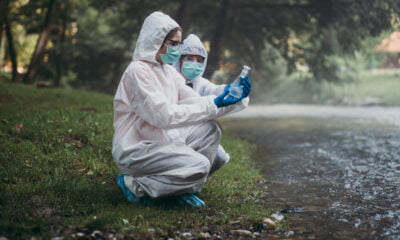

Environment
‘Missing’ ocean plastic pollutants may be swallowed up by marine species
Plastic pollutants afflict all of the world’s oceans, but a new study has found that the quantity of floating waste around the world is lower than expected. While this sounds like good news, scientists warned that it may mean plastics are being ingested by marine life, with extremely harmful consequences.
Around 15,000 pieces of plastic are dumped into the ocean every day, in what is a growing environmental crisis. Pollutants of different sizes can have various impacts on ocean-dwellers, including threatened species such as turtles.
In a new study published in the journal Proceedings of the National Academy of Sciences, researchers from the University of Cadiz in Spain measured floating plastic debris during a nine-month circumnavigation expedition.
The authors poured over 3,070 ocean surface samples, collected from around the world, and found that 88% of sample sites contained “microplastic” debris – small fragments of plastics that can remain in the environment for hundreds of years.
However, while the presence of microplastics is significant, it is far lower than anticipated.
“Based on trends in plastic pollution we expected to find about 100 times more plastic than we actually found”, study co-author Prof Carlos Duarte of the University of Western Australia told ABC.
Studying their findings, the research team found that the discrepancy was caused by the lower levels of microplastics, while larger forms of pollution were found at expected levels.
“The reason is probably because it is being removed by fish and entering the ocean food web”, Duarte added.
In a statement, study co-author Andrés Cózar explained, “These microplastics have an influence on the behaviour and the food chain of marine organisms.
“The tiny plastic fragments often accumulate contaminants that, if swallowed, can be passed to organisms during digestion; without forgetting the gastrointestinal obstructions, which are another of the most common problems with this type of waste.”
Other explanations are possible, the team said, suggesting that the microplastics could sink faster than expected, or that bacteria may break the pollutants down.
However, the most likely hypothesis is that fish are ingesting the pollutants, which would then be passed up the food chain. To find out, the researchers say further studies are urgently needed.
Photo: Stephen Edgar via Flickr
Further reading:
Microplastic intoxicates marine wildlife, new study finds
Study: plastic pollution not limited to oceans
Ghost nets and feminised fish: sea turtles and the dangers of ‘novel pollutants’


 Environment12 months ago
Environment12 months agoAre Polymer Banknotes: an Eco-Friendly Trend or a Groundswell?

 Features11 months ago
Features11 months agoEco-Friendly Cryptocurrencies: Sustainable Investment Choices

 Features12 months ago
Features12 months agoEco-Friendly Crypto Traders Must Find the Right Exchange

 Energy11 months ago
Energy11 months agoThe Growing Role of Solar Panels in Ireland’s Energy Future





























